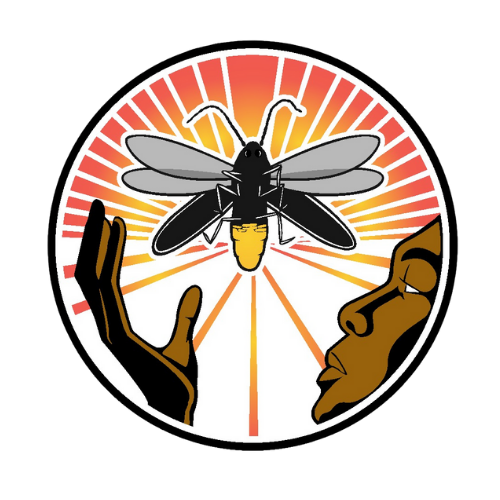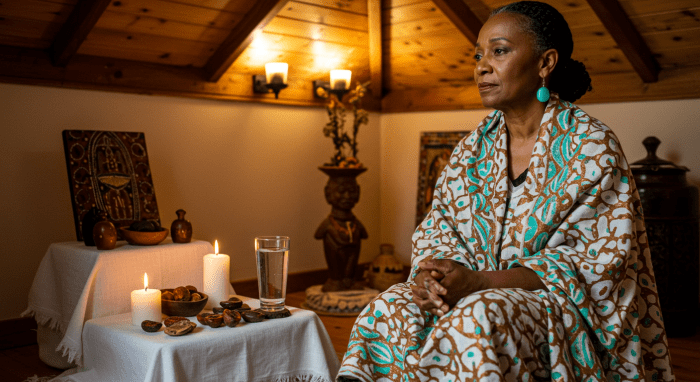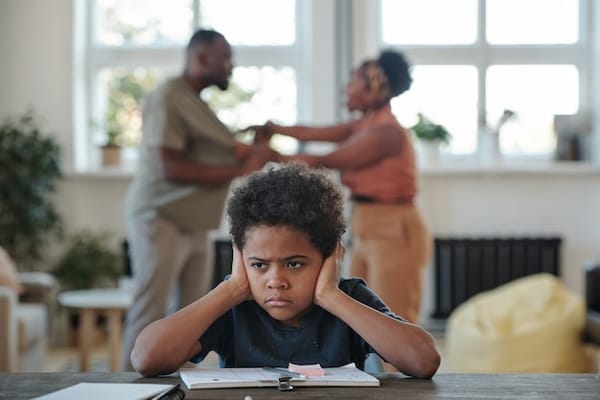
By Muhumuza Bageire
In the Kemetic Holy Drama, the God-Father WSR and Goddess-Mother AISHAT produced the God-Son HERU and created a family. When I look at marriages of the past in Meritah (Africa), they were more about respect, duty, and the practical aspects of family and community life rather than romantic love. Marriage was often seen as a union between families or clans rather than just individuals. It was a way to consolidate social ties, initiate alliances, and guarantee the continuity of the community.
The primary focus of marriage was often to produce offspring and ensure the continuation of the family lineage. Children were highly valued, and having a large family was seen as a sign of prosperity and strength.
Each of the partners had a specific function and duty within the marriage. Men were normally responsible for providing for the family, while women were in charge of raising children and managing the household. These positions were clear and respected.
The exchange of dowry or bride price was a common occurrence. This was not just a financial transaction but a way to show respect and commitment to the marriage. It also symbolised the joining of two families.
Elders played a major role in arranging marriages and making sure that the union was advantageous for both families. Their wisdom and experience were greatly appreciated, and their approval was often required for the marriage to take place.
While love and affection were indeed present in many marriages, they were not the core focus. Creating a stable and harmonious family unit that could contribute to the welfare of the community was the primary goal.
In modern Meritah (Africa), traditional marital practices still hold substantial cultural value, but their prevalence varies across regions and communities. In rural areas, traditional marital practices are more usual and stay deeply rooted in cultural standards. In urban areas, however, there is a shift towards more modern and Westernised marital practices, motivated by globalisation and changing social conditions.
Meritah (Africa) is amazingly varied, with an abundant array of ethnic groups, each with its own unique marital practices. Some communities maintain traditional customs more strictly, while others have adjusted to modern influences.
Legal contexts and social changes have also impacted marital practices. For example, many countries have laws that protect women's rights and promote gender equality, which can influence traditional marital customs.
Economic conditions also factor in marital practices. In some instances, the high cost of traditional ceremonies and bride price often steers couples towards simpler, more modern weddings.
With increasing mobility and interaction between different cultural and religious groups, interfaith and intercultural marriages are becoming more prevalent. These marriages often blend traditional and modern customs.
While traditional values of respect, duty, and family remain important, I see that there is a growing emphasis on love and personal choice in marriage decisions, especially among younger generations.
From my observations, personal choice marriages tend to foster deeper emotional bonds and mutual understanding from the outset, with individuals feeling empowered and more invested in relationships they’ve chosen freely. However, this is often not long-lasting as expectations are not met. Personal choice often stems from emotional attraction, which may not be grounded in long-term compatibility or practical realities. Conflicts between individual desire and collective expectations, especially in more traditional societies often arise. Higher expectations for personal fulfillment often lead to quicker disillusionment if the relationship does not "feel right" after a time. Relationships built on passion alone often falter when tested by life’s inevitable pressures, like financial hardship, illness, family conflict and so on.
On the other hand, arranged marriages typically emphasize commitment and perseverance, where staying together is a shared duty for both partners and often families. Couples in arranged marriages tend to enter with lower expectations of immediate happiness, focusing instead on building love and trust over time. It’s not always the case, especially if one party is entering the marriage against their will, but arranged marriages usually come with stronger familial support and alignment with cultural, religious, and/or social norms, which can act as buffers in times of crisis.
Personal choice in marriage empowers individuals and prioritizes love, but it also brings risks tied to emotional expectations, fragility under stress, and less structured family support. Arranged marriages, though sometimes criticized for lacking autonomy, commonly provide resilience and community cohesion.
Ultimately, the quality of marriage usually depends less on how it begins, arranged or chosen, and more on how partners adapt, grow, and stay committed over time. Hybrid models that incorporate freedom of choice with familial wisdom and support are now being seen as an optimal option in many modern societies.







